knock knock, it’s a new message in your inbox. whose is that? A future business partner, a high-performing employee candidate, or a potential customer? Or maybe it’s just a scammer who wants to steal your personal data (or money)?
ooh… it could be anything…
That’s why it’s best to have a couple of useful tools on hand to protect yourself from scams and fraud, just in case.
You already have half the work done: you have an email address! and with its help, you can find personal information such as the name of the owner of the email address, the websites where your email was mentioned, and even your physical address and phone number.
Do you want to know how? We’ve compiled a list of the best free and paid reverse email lookup tools and are ready to share the information on how to use them.
what is a reverse email lookup?
A reverse email lookup service is an online tool that can help users find out who might be contacting them via email and for what purpose, especially if it’s an email address. unknown or suspicious email address.
You can also use it to learn more about the candidates you’re hiring or the leads (for sales and marketing specialists) you want to convert.
The information received can be the following:
- senders real full name
- aliases, if you have them
- full current address
- your phone numbers, both mobile and landline
- all social network profiles (facebook, twitter, linkedin, etc.)
- photos of the senders
why do I need a reverse email lookup tool?
short answer: it can protect you from phishing attacks.
Long answer: Magical email search tools help you identify fake email addresses and potential fraud early. this is a very important benefit to consider because responding to phishing emails can undermine the security of your personal data and the data of the company you are a part of.
Cybercriminals often use email to trick those who don’t recognize a phishing attack into giving them personal information.
how does it work? imagine a scammer writing you a message, pretending to be the legitimate owner of some business so that you open an email and unknowingly download a malicious file that will steal your data.
According to statistics, the average email user receives 16 (!) malicious emails every month, so the chances of you ending up being a target are quite high.
what is reverse email lookup used for?
In addition to security, there are two other main uses for reverse email lookup: recruiting and marketing.
These tools are essential when it comes to hiring people since not all candidates are honest with recruiters and company representatives. If you don’t verify the accuracy of the information, you may simply hire someone who will do your business more harm than good.
For marketing purposes, it’s best to verify and then send emails to valid and promising leads. Otherwise, it will damage the reputation of your email domain. And in the end, the lofty goal of increasing lead generation will backfire on you.
note! if you don’t need a detailed investigation about the sender, but just want to verify the validity of the contact, you can use snov.io’s email verifier. Within seconds, you can verify questionable email addresses and clear your contact list of unpromising leads. Also, checking if the emails are valid with the email checker will help you save the reputation of your IP address, which can be damaged by a high bounce rate.

if, in addition to the validity of the contact, you also want more information about them (real name, nicknames, phone numbers, etc.), read on!
Top 6 Reverse Email Lookup Options
We did our research and asked business experts to share their experiences with reverse email lookup. Having received around 20 responses, we compiled a list of the 6 best ways to find data through an email address. the most popular among these is the use of special websites and tools.
#1. reverse email lookup with the help of special websites and tools (free and paid)
coconut seeker
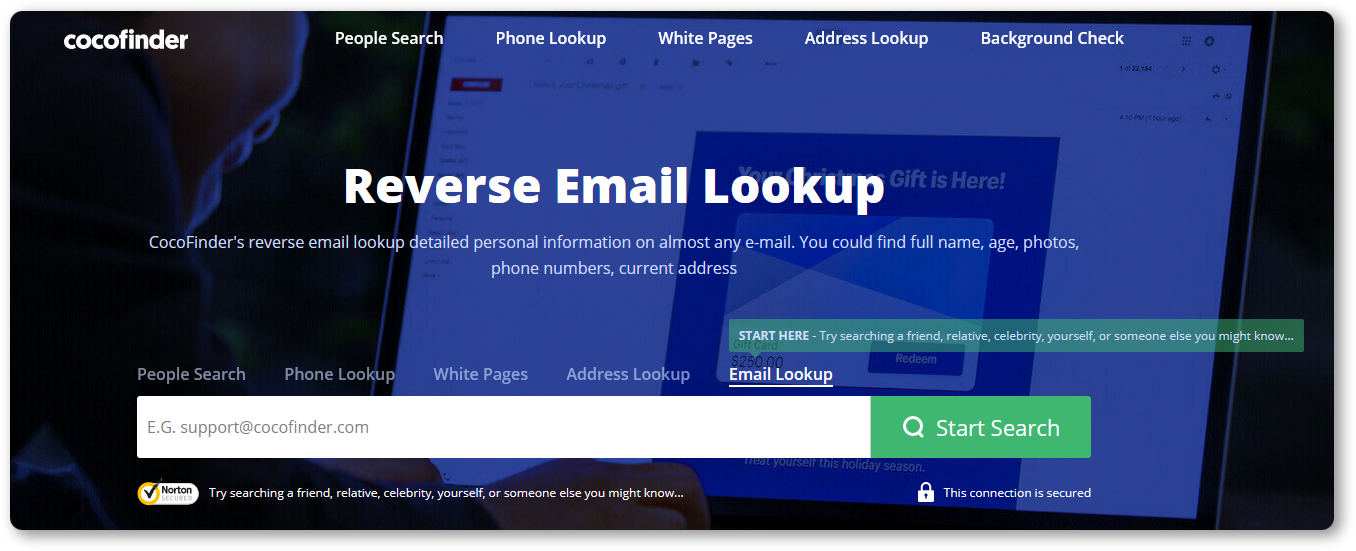
cocofinder is a public records search service company that offers a variety of features with a user-friendly interface.
Using their email search tool, you can find data such as the sender’s first and last name, nickname, social media profiles (facebook, twitter or linkedin), full current address, email numbers, etc. phone, photos, etc.
cocofinder is currently one of the most popular tools for reverse email lookup. most of the responses we received advised using it as a reverse email lookup tool. This is what harriet chan, co-founder of the company, has to say about its benefits:
I use cocofinder to learn more about my customers, which helps to better personalize their experiences. plus, doing a background check on my customers and prospects allows me to identify more people in your online circle to benefit from my products.
In terms of lead generation, using this tool helped Harriet attract 10% more leads at this time of year than in all of 2020.
>
In addition, with cocofinder, you can collect data on potential business partners. The team of john ross, CEO of test prep insight, receives several emails a week from random companies requesting to partner with them. and it is necessary to analyze the scammers of possible legitimate partners. this is where cocofinder comes to the rescue:
the advantage of cocofinder is that it is super accurate and works well for our purposes. however, the downside is that it can be a bit pricey. It’s not the cheapest tool on the internet, but since the alternative is to do extensive research on google ourselves or pay a cut-price service, I think it’s worth the price.
other search options available: by name, address, phone numbers.
how to use: go to the website and then scroll down a bit to find the tool you need.
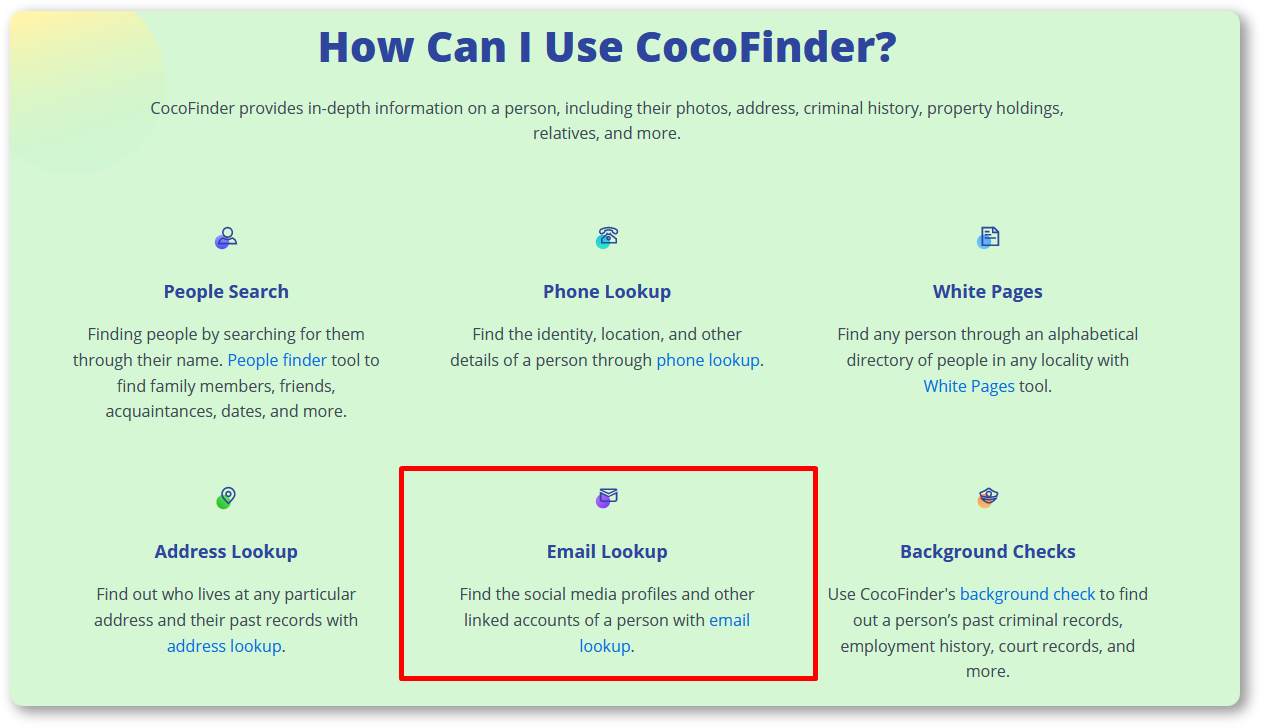
After that, enter your target person’s email address, click the start search button and cocofinder will provide you with a report in a few minutes.
If no data is available on your search, you will be offered to try other background check services such as Trustfinder, Instant Checkmate, BeenVerified, Intelius and Peoplefinders. by the way, some of them will also be mentioned in our list.
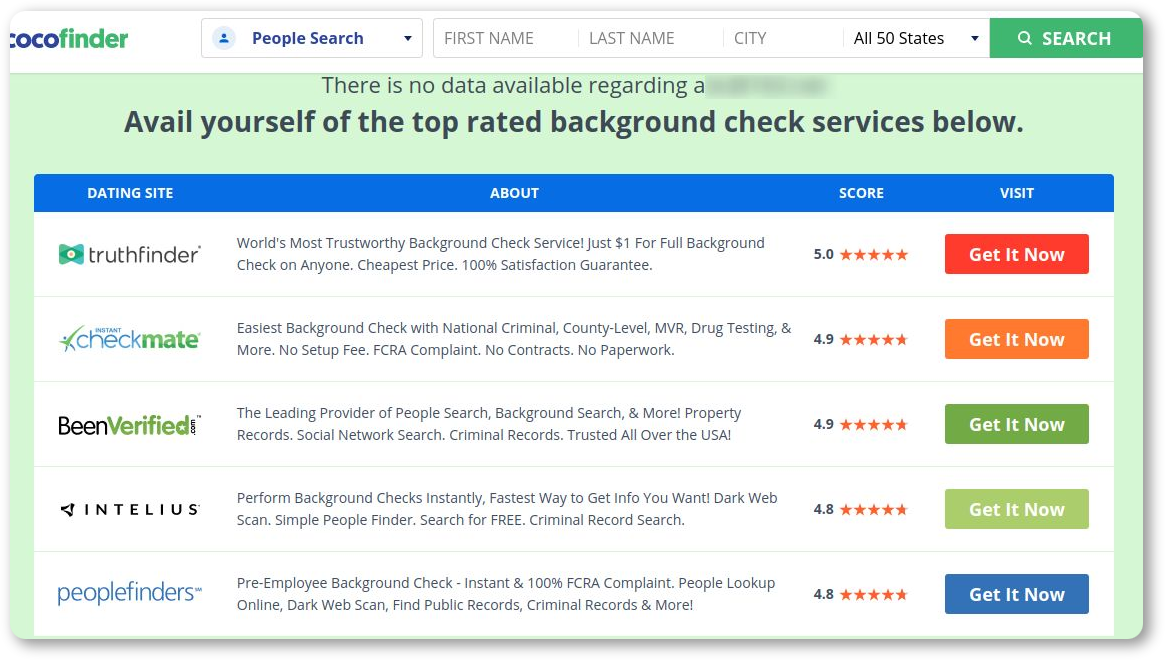
Price: Basic features, such as phone search, are available free of charge, but if you need advanced information about your target, you must pay a fee. the more data you need, the higher the price.
social catfish
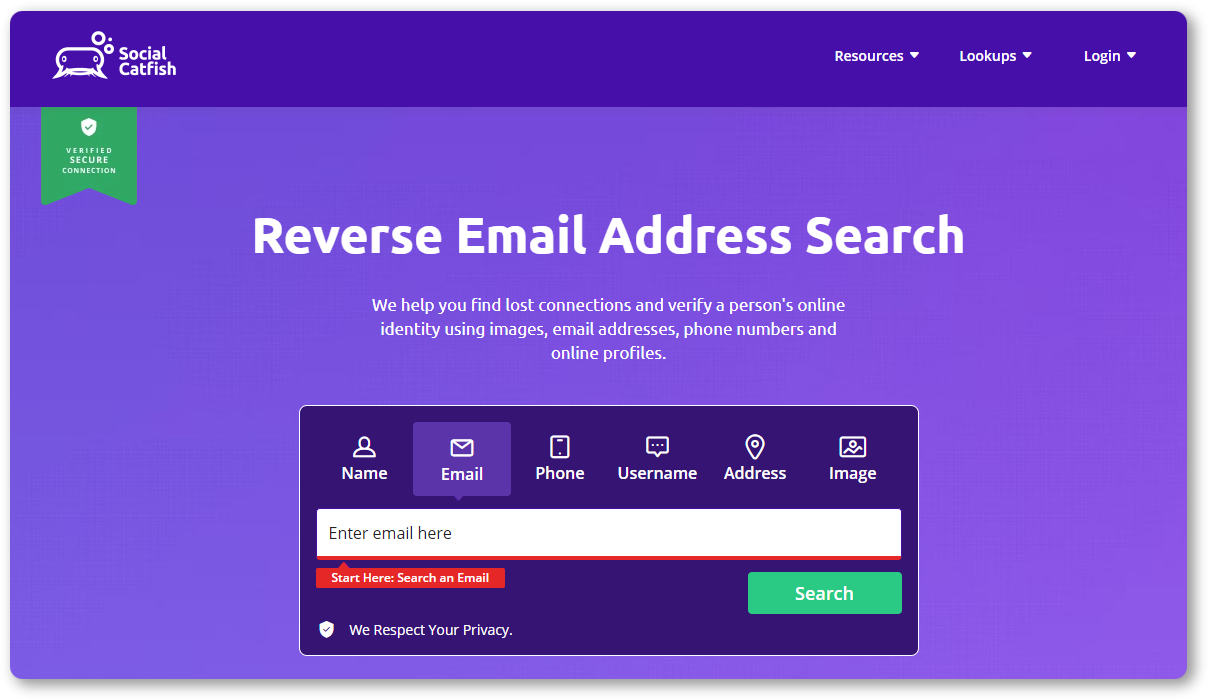
social catfish is an online investigative service that checks data to confirm if the person you’ve received an email from is really who they say they are.
get the following information: phone numbers, social profiles (twitter, facebook, linkedin, etc.), addresses, usernames, age, images, aliases and more!
With this service you can:
- check if a scammer is writing to you or not.
- Get real information about your business partners and potential customers.
- find not only a contact number but also a photo of the person you are interested in.
other search options available: by name, address, phone number, username and images.
How to use it: Sign up at socialcatfish.com, choose the best paying plan for you, and then use the service tools. enter the email of the person who sent you the email and start the search.
or start the search first, then unlock your report by subscribing to the service.
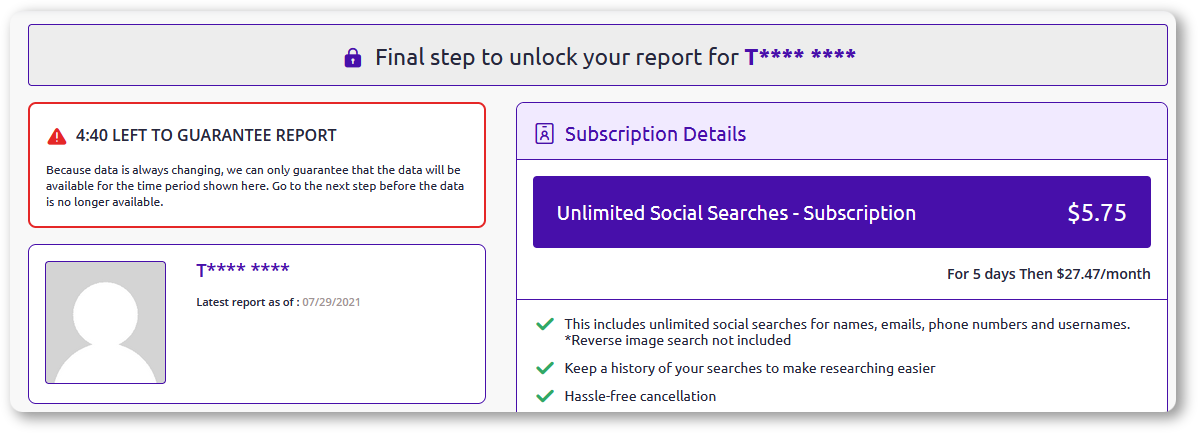
price: $5.75 for 5 days, then $27.47 per month.
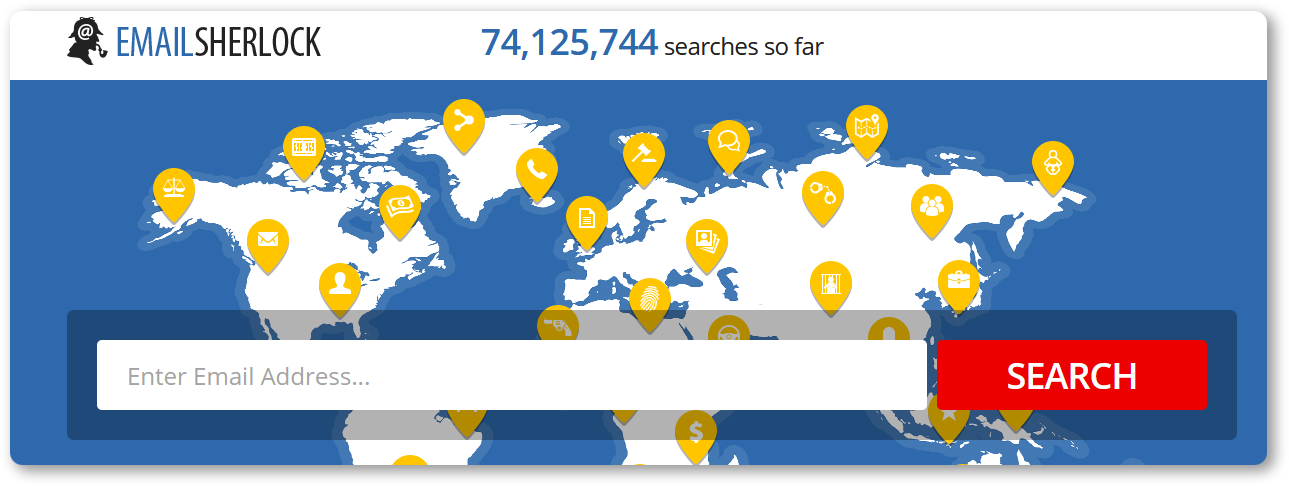
Like other tools on this list, emailsherlock helps determine the identity of the owner of an unknown email address that appears in your inbox.
This is the information you can get when you run a reverse email lookup: the sender’s name, phone number, location, public records, photos and videos, web results (google, bing, yahoo, web archive results, posts , news), etc .
Caroline Lee, co-founder of cocosign, loves using this tool because it lets her know who the scammer is, their real identity, any negative history records, etc. As for the shortcomings, Caroline stresses that sometimes this reverse email lookup tool provides inaccurate results:
And I would like to add that this is another tool that does not provide complete information and instead sends users to the verified website for a detailed payment report. Wouldn’t it be easier to go directly to beenverified first?
still, it can be quite useful.
how to use it: enter an email address and click the search button. As a result, you will get a report containing profiles associated with the email, including profiles on gravatar, facebook, flickr, etc. (if appropriate!). this is how you can get the name of the person who sends you an email. I found the gravatar profile of our publisher like this:
 To get advanced data like the phone number, address, or web results, you need to go to BeenVerified (you’ll be automatically redirected there) and restart the search process.
To get advanced data like the phone number, address, or web results, you need to go to BeenVerified (you’ll be automatically redirected there) and restart the search process.
price. free.
infotracer
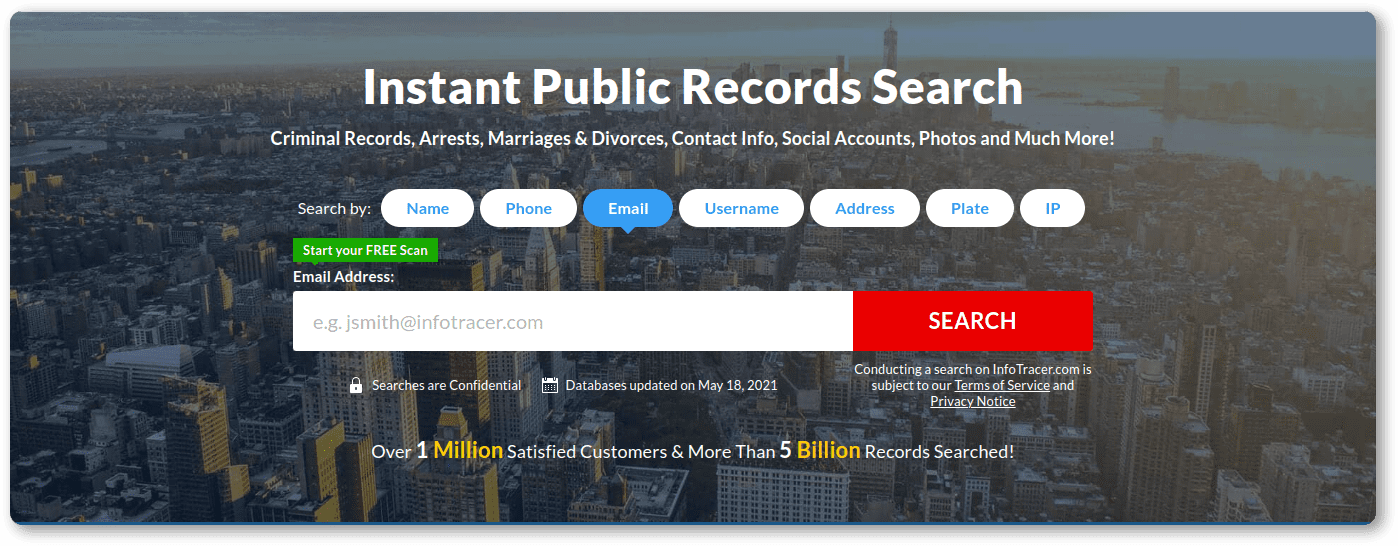
with infotracer, you can find sender name, address history, phone numbers, social profiles, web accounts, images & videos, personal assets, data breaches, online activity, public records, education and employment information.
reuben yonatan, the founder & CEO of getvoip, uses this tool once a week. as it says:
I get a lot of marketing emails; some are services I could use, but I like to know more about the sender/seller before I make the first move. infotracer is very detailed and inexpensive. it’s also faster than the other tools I’ve used.
other search options: by name, phone number, username, address, license plate number, ip address.
How to use it: Enter the email of the person who sent you an email, start the search, and then unlock your report by subscribing to the service.
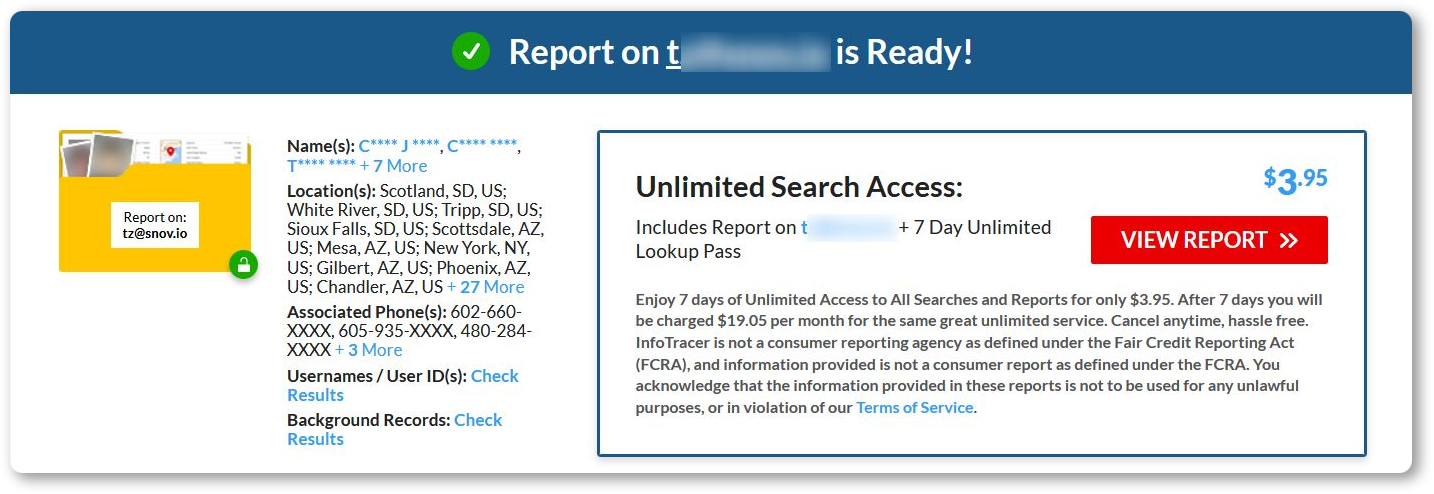
Price: Unlimited search access will cost you $3.95 for 7 days, then you will be charged $19.05 per month.
instant checkmate
Instant Checkmate is a public records search service that allows you to verify information online about people you are interested in, your potential customers, business partners, or prospective employees.
what can an email search reveal? name, photos, previous jobs, possible addresses, other known email addresses, possible website usernames, gravatar profile, social media profiles (facebook, pinterest, linkedin), etc.
other search options: by phone number, name, location.
how to use it: to use the reverse email lookup feature, you must have an account on their website. the tricky part is that in order to sign up, you have to run a name check first and sign up for the service, so that’s pretty inconvenient. 🤔
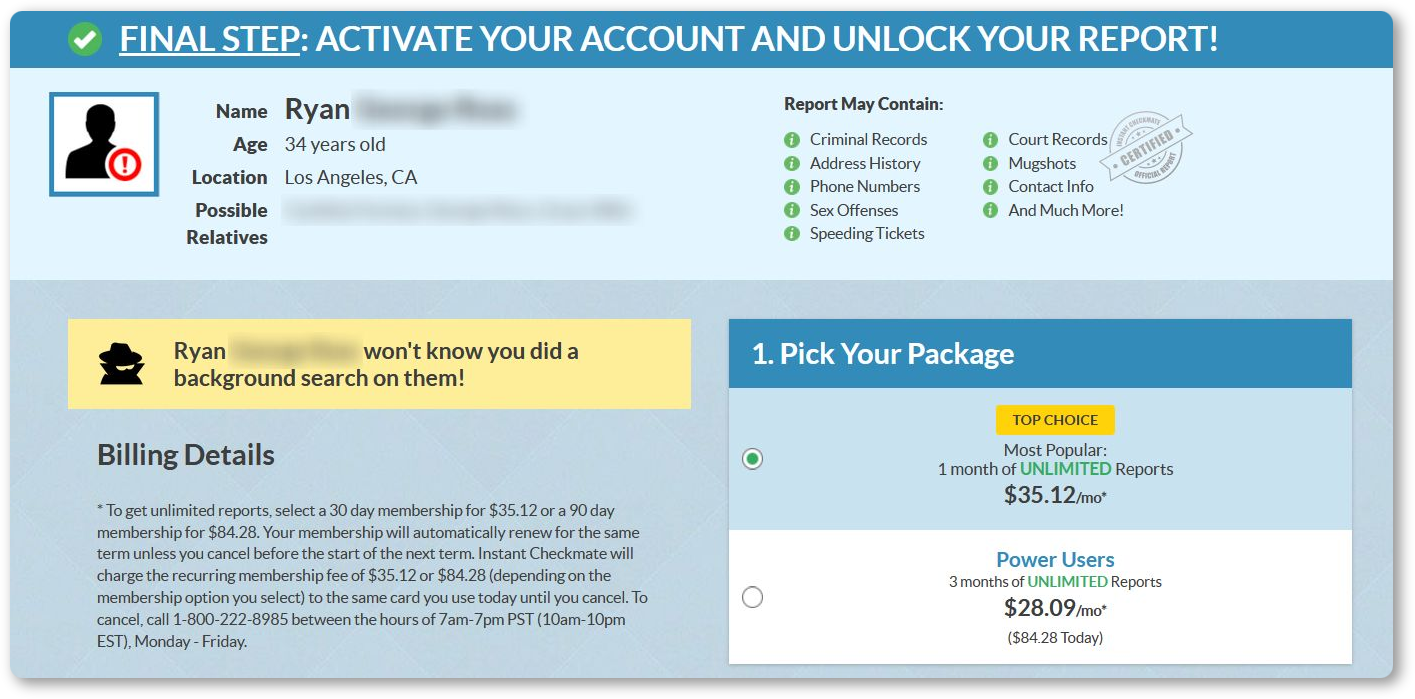
once your account is created, the procedure is the same: enter an email address in the search field of your control panel and get a report.

price. $2 for a 5-day trial, $35.12 per month for 1 month of unlimited reporting, $28.09 per month for 3 months of unlimited reporting.
verified
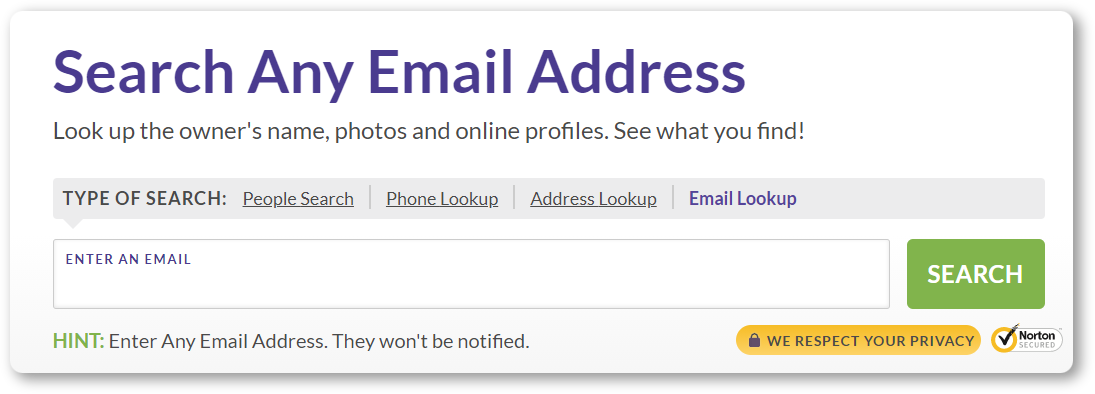
here it comes! beenverified has already been mentioned several times when describing other tools on our list. users of the most popular reverse lookup websites cocofinder and emailsherlock are often redirected to it.
its reverse email lookup feature goes beyond search engines and scours billions of public records so users can find the data they need: aliases, phone numbers, alternate email addresses, social media profiles, education and work experience information.
Reports from this tool may also contain court records on potential criminal and civil cases.
other options for this service: by phone, address, username, vehicle, unclaimed money.
how to use it: you can register and choose the payment plan that suits you best. after that, you can use the tool safely and without restrictions.
or you can also get a report by entering an email of the person you are interested in and doing a search. then you will be asked to pay for the trial period. that’s all!
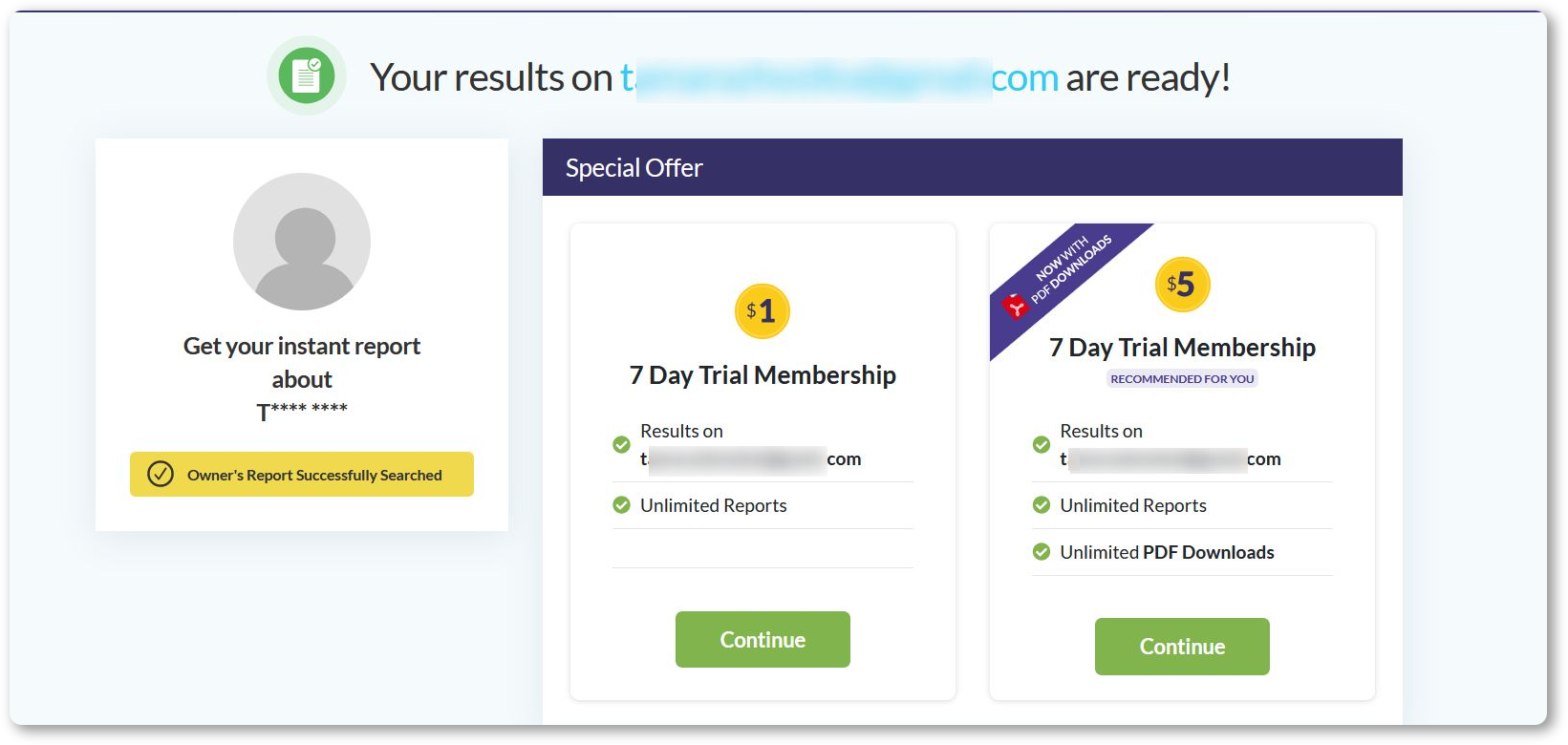
price. $1-5 for the 7-day trial period, $26.89 for a 1-month membership, $17.48 per month for a 3-month membership.
You can also check other tools: intelius, thatsthem, speako, truthfinder.
If you think reverse email lookup tools are too expensive, we’ve got you covered. the free search method comes next!
#2. free email search on google
This search option is the simplest and therefore one of the most popular. the advantages of this method are speed and affordability.
there is a high probability that you will find what you are looking for, since many people register on various websites, forums or other platforms. the search engine will extract and disclose all the data about the account of your interest that is found online. you won’t pay a penny and still get a lot of relevant information.
google can show you the social media accounts of the contact who sent you the email. You can also learn more about a person’s personal data from their profiles on LinkedIn, Facebook, etc.

But unfortunately, such a search may not always provide the desired results. In some cases, it can waste your time, for example if the person you are looking for has not linked their email address to any social media accounts.
#3. reverse email lookup using browser extensions
Another way to perform a reverse email lookup is by using browser extensions, for example, the seon intelligence tool. with it, you can perform a reverse lookup of an email address to get the data you need, namely first/last name, social media accounts, and more.
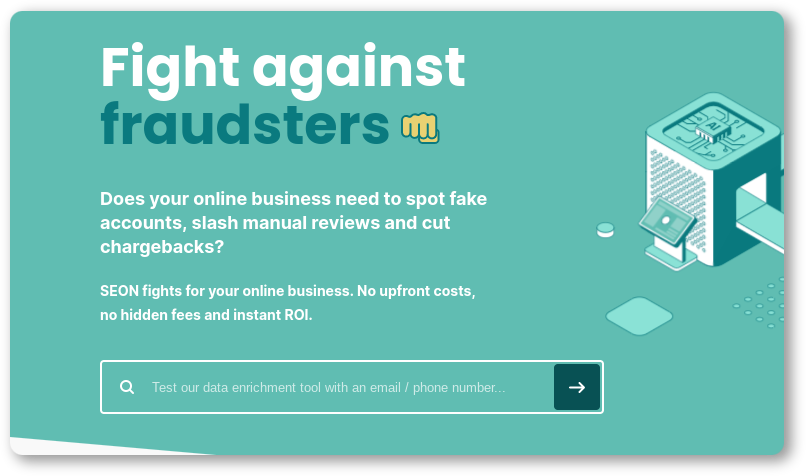
key features: integration with fraud prevention tools, accurate risk scores.
the founder & the executive director of online bachelor’s degree grant aldrich is satisfied with all the capabilities of the tool, although he highlighted only one drawback:
the only drawback is that it is a little more expensive than other similar tools, but I found that the depth of information they provide is not as good as with seon.
other search options available: phone scan module, ip scan module.
how to use it: if you’re not ready to commit to seon, try it for free first. sign up for 14 day trial and enjoy using the tool. you can perform the checks manually, via api or with a google chrome extension.

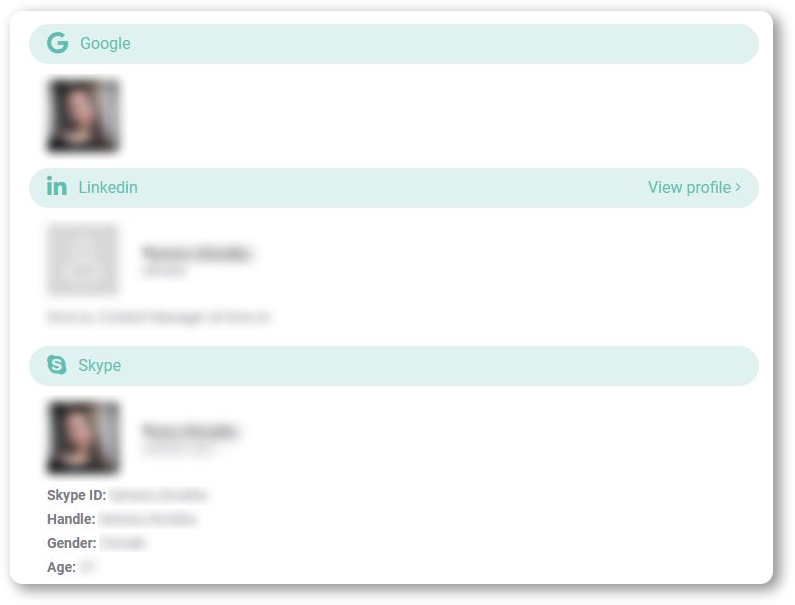
price: from €300 per month (up to 4,000 checks) up to €1,000 per month (up to 15,000 checks). a 14-day free trial provides up to 1,000 checks.
yes, a bit pricey! but the quality is worth it.
#4. reverse email lookup by domain name
If the sender’s email address uses a commercial domain name, you can go to namecheap.com, who.is or mxtoolbox.com search for the email domain and learn more about its owner.

These websites will provide you with publicly available data such as domain registrar, status, expiration date, and dns servers. The disadvantage of this method is that the domain owner could buy this domain and give it to his team to use and as a result you may not get what you are looking for.
how to use it: to start the search, enter a domain or ip address.
price: free.
by the way, whois.whoisxmlapi can return even more results. you only need to enter the sender’s email (not the domain). here, the services are paid and are available upon registration, but the possibilities are much broader. you can find the name and physical location of the registrant, the creation and expiration dates, the last update of the domain, as well as verify the validity of the email address.
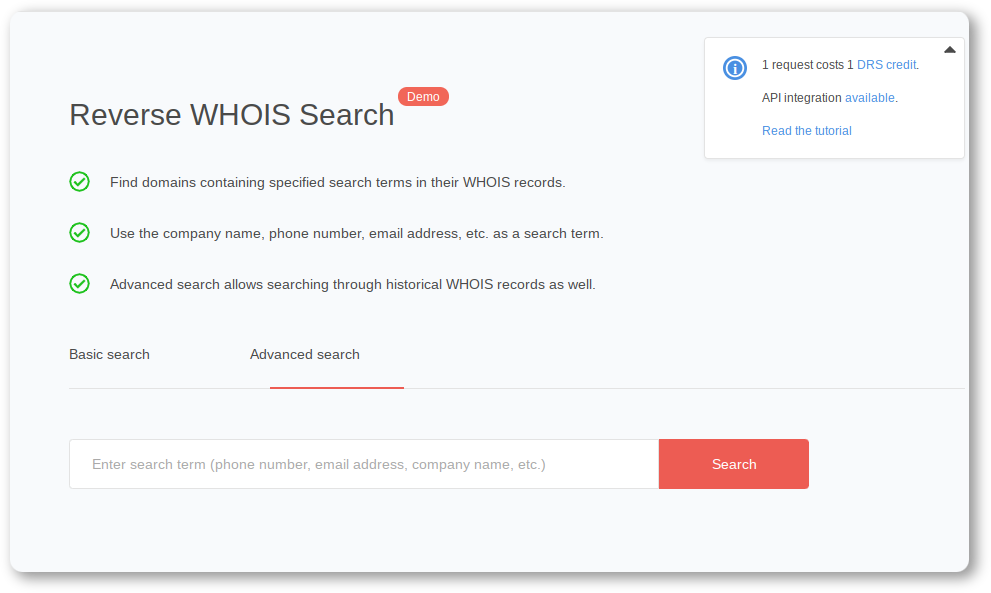
Also, with this tool, you can perform a bulk reverse lookup of emails. To use who.is services, you need to register and you will immediately receive 500 free credits (1 request = 1 credit).
price: from $30 (1,000 credits per month) to $3,600 (2,500,000 credits per month).
still haven’t found the option that suits you best? let’s continue!
#5. reverse email lookup using facebook and other social networks
this one is simple! simply copy and paste the email address of the person you want to find into the facebook search box and click the search button. If the sender has made her email public on Facebook, her name will appear in the results. there, you can easily check photos and basic sender information.

However, this method has a drawback. Since Facebook’s privacy settings allow you to prevent users from seeing your email address, you may not get any results.
If you can’t find your sender’s personal information on facebook, use other social networks like linkedin, instagram and twitter. chances are you’ll find some data on at least one of them.
#6. reverse email lookup using email clients
use email clients that automatically report on senders, eg polymail for macos or mailbird for windows.

They are perfect for tasks such as retrieving and displaying the sender’s data. You don’t have to go anywhere to do complex research since all the necessary information is there. Still, I like Polymail more because it’s more informative than MailBird.
price: polymail costs from $13 per month (per user) to $59 per month (per user). mailbird costs from €1.69 per month (billed annually, unlimited accounts) to €82.25 (one-time payment, unlimited accounts).
summarizing
that’s all for now! has a huge list of tools and methods to help you achieve your goals, whether it’s identifying fake email addresses and possible fraud in time or looking up data on potential clients and job candidates. As you can see, there are paid and free options, with different functionalities, so choose wisely according to your needs and those of your company.
good luck!
